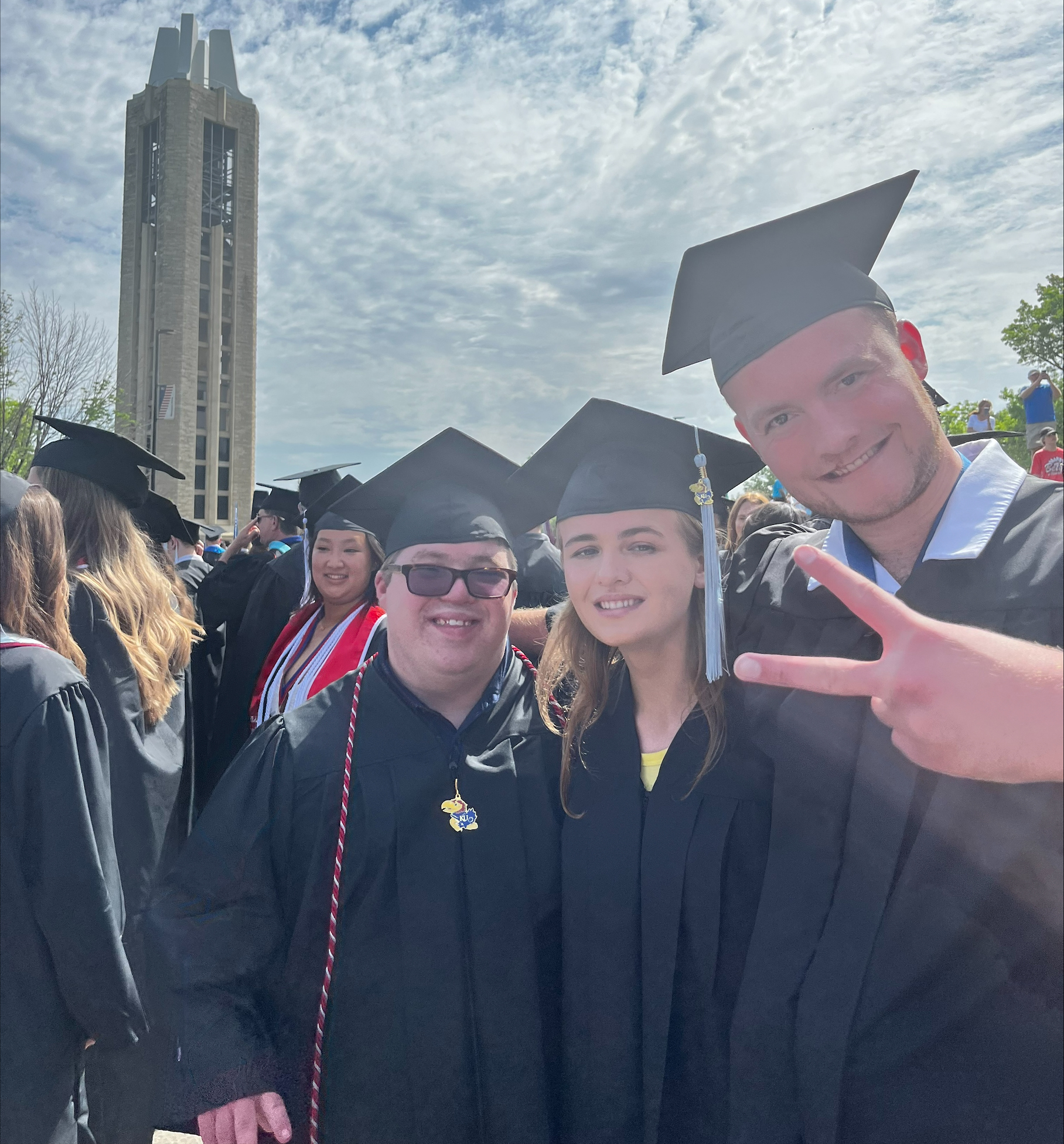KU TPE Gets Boost with Grant Funding from National Community Care Corps
A two-year grant of nearly $125,000 from the Community Cares Corps will help the KU Transition to Postsecondary Education program train student navigators and academic coaches for its inclusive college certificate program for young adults with intellectual disabilities.
Through KU TPE, KU students with intellectual disabilities take classes, participate in student clubs and organizations, develop a career pathway including internships, and earn an undergraduate certificate. The program is a part of the KU School of Education and Human Sciences, KU Center on Developmental Disabilities (KUCDD), and the KU Beach Center on Disability.
The peer navigators, in addition to peer coaches, are a key part of the program, said Dana Lattin, TPE director.
"Meeting new friends and creating social and professional networks can be a challenge at a large university," Lattin said. "To help students succeed, we're developing a model for peers—known as peer navigators—to not just be a friend, but help students make more friends and experience social life at KU."
 This year, 10 KU undergraduate students are involved in the TPE program. More than 40 students have been KU Jayhawks through TPE since 2016. Students graduating with the KU TPE Undergraduate Certificate earn at least 24 credit hours.
This year, 10 KU undergraduate students are involved in the TPE program. More than 40 students have been KU Jayhawks through TPE since 2016. Students graduating with the KU TPE Undergraduate Certificate earn at least 24 credit hours.
KU is accepting applications for students interested in the TPE undergraduate certificate program. Interested students and parents can learn more by attending one of four information sessions during November in Kansas. The sessions will be held at 6:30 p.m. on Nov. 1 in Wichita, Nov. 8 in Overland Park, Nov. 14 in Emporia and Nov. 15 in Manhattan. Registration is free but requested through the TPE website.
National Community Cares Corps awarded the grant to TPE as part of its work to support innovative local models in which volunteers provide nonmedical assistance to family caregivers, older adults, or adults with disabilities in order to maintain their independence.